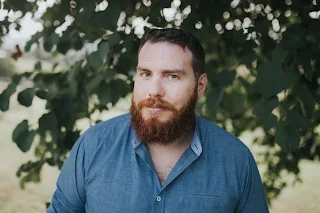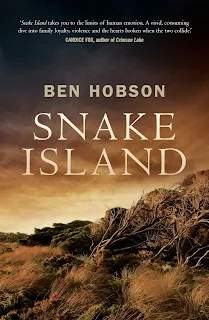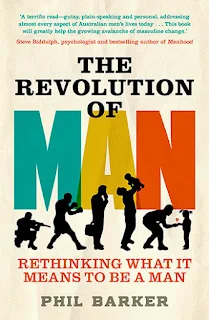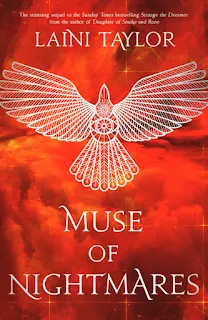This month it was my pleasure to co-host a
buddy read with my bookish friend Theresa Smith. A number of eager bibliophiles joined us and together we read
Rebecca by Daphne du Maurier. Theresa created a space for us to discuss the novel via an online event on her book club Facebook page which elevated the buddy read to a 5 star reading experience for me. I won't be giving the book 5 stars though.
Rebecca was published in 1938, therefore this review is going to unashamedly
contain spoilers, so beware.
It's clear from the prologue that our narrator is in some form of exile, haunted by what happened at Manderley several years ago. The narrator is a young female protagonist, and we begin when she is the paid companion of Mrs Van Hopper, on holiday in Monte Carlo. There she meets recently widowed Maxim de Winter and they strike up a friendship.
The age difference between the couple is significant and when Maxim proposes marriage it catches our protagonist off guard. Faced with the alternative of accompanying her employer to New York and continuing her life as a paid companion, she accepts Maxim's proposal and becomes Mrs de Winter. After their honeymoon they return to Maxim's ancestral home, the infamous Manderley.
Mrs Danvers is the stern housekeeper at Manderley and resents the arrival of the new Mrs de Winter. Maxim's late wife Rebecca still very much overshadows Manderley and our protagonist cowers at her memory. It's true she is nothing like Rebecca, who was renowned for her beauty, her accomplishments and bigger than life attitude. There is an underlying feeling of unease and unrest during this part of the novel that I enjoyed very much. Mrs de Winter is almost haunted by Rebecca and can feel her presence everywhere. I enjoyed these gothic elements immensely.
Our protagonist is shy, reserved and extremely sentimental. She continually daydreams, imagining the past, present and future in long internal monologues available to the reader. She lacks confidence, suffers from low self esteem and is constantly comparing herself to Rebecca and coming up short.
Our protagonist learns Rebecca took her boat out one night and was never seen again. Maxim identified her body washed up on the shore months later, and which now rests in the family crypt. However when a boat runs aground, the remains of Rebecca's yacht are discovered, along with a body locked in the cabin.
The body is Rebecca's and consequently Maxim confesses to our protagonist that he never loved Rebecca. He tells his new wife Rebecca manipulated people into loving her, however she was a bitterly cruel woman, unfaithful and vindictive, living behind the facade of a dutiful wife. He confesses that he was goaded to kill her after Rebecca told him she carried another man's baby and was going to force Maxim to raise it as the heir to Manderley.
We expect our protagonist to be horrified and repulsed to find her husband murdered his first wife, but her only reaction is relief! Her only care is relief that her husband never loved Rebecca and loves her instead. Ugh! This was the last straw for me and any respect I had left for our protagonist evaporated.
An inquiry is held and Rebecca's death is ruled a suicide. Rebecca's cousin and the ever faithful Mrs Danvers appear to disagree and suspect Maxim to be responsible for her death. On their way back from London, Maxim and Mrs de Winter find Manderley in flames and the novels ends.
Given the slow pace of the rest of the novel, the ending seemed sudden and left me with plenty of unanswered questions. Who started the fire? Was it Mrs Danvers, the cousin or both of them? Why would Mrs Danvers want to destroy Manderley when she loved it so much? Was anyone injured in the fire? What of Frank and the other house servants we came to care about? Were charges laid? Why did Maxim leave Manderley and exile himself and his wife overseas when his name had been cleared?
It seemed to me our narrator escaped one relationship as a paid companion in favour of another as Maxim's companion. Their union was an odd one, and the age difference wasn't the only concern. It seemed Maxim wanted any kind of company and she just wanted to be loved. There was no evidence of any physical love or meeting of the minds going on here.
The writing is flawless, descriptive and evocative, however many of the readers in the buddy read found it heavy going, as I did. Here's a charming example from Chapter 2, I just loved the phrase 'healthy irritation'.
How I blessed those solid, flannelled figures, for in a few minutes his face had settled back into repose, the colour had returned, and he was deriding the Surrey bowling in healthy irritation.
The fact that we never learn our protagonist's name was clever but simultaneously irritating. I'm presuming our narrator remained nameless to indicate she doesn't have a strong sense of self/identity, however the narrative achieves this quite comfortably. She only acquires an identity when she becomes Mrs de Winter. Throughout the novel, I began to form the opinion that this was an attempt by the author to demonstrate her writing superiority in a 'look what I can do' kind of way. And in writing this review, I began to appreciate how difficult this must have been.
Having read
Rebecca I can now understand why it is an enduring classic. There's the writing of course, but the fact that one of the main characters was a murderer without being a villain must have been quite a shock at the time. This would have been a major twist of sorts, and learning Rebecca's true nature would have been another unexpected revelation to readers.
Nowadays, there are plenty of examples of an anti-hero or likeable villain, (
You by Caroline Kepnes and
Hangman by Jack Heath are the first to spring to mind) and a tonne of unreliable narrators mean we're less likely to be shocked by this kind of revelation now.
Having had time to let my thoughts settle, I believe my enjoyment reading
Rebecca stemmed from co-hosting and participating in the buddy read. The ability to swap thoughts and share reactions created a reading kinship that was so much fun. (You can read Theresa's thoughts on
Rebecca here). I also enjoyed the satisfaction and joy that comes from reading a classic you've been meaning to get to for
years.
When I separate out the reading experience, I actually found the novel to be a solid three star read for me. I didn't like the protagonist, I wasn't shocked when we learned Maxim killed Rebecca and the ending left me with unanswered questions.
Of course, I can see how Manderley (which I later learned was based on a real property) has inspired the creation of a host of family estates, gothic mansions and manor houses in fiction since publication in 1938 and I understand why
Rebecca has never been out of print. It's a modern classic and I suspect this won't change.
My Rating:
★
★
★
★
★
Carpe Librum!












































